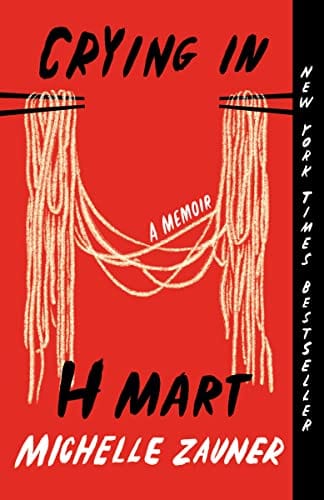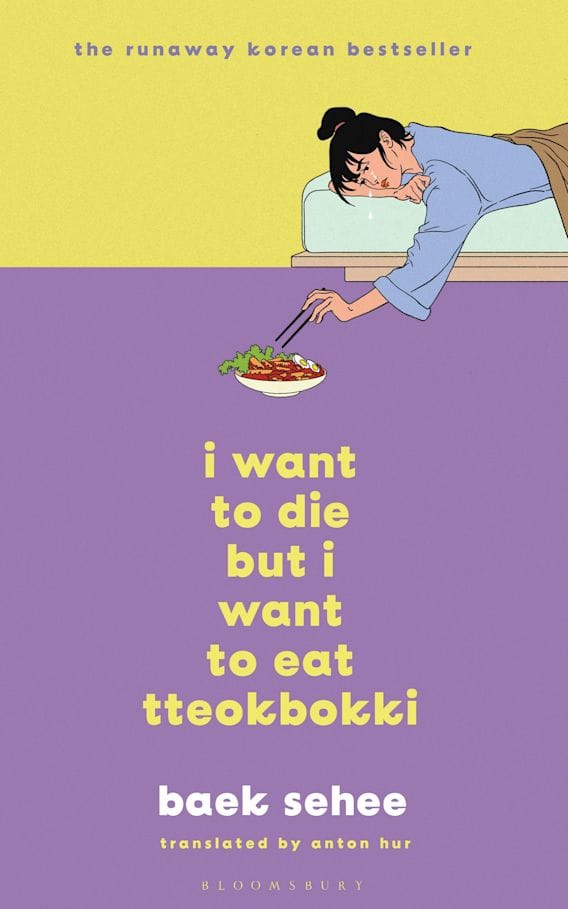Crying in H Mart: Michelle Zauner’s Powerful Memoir of Food, Loss, and Identity
Michelle Zauner’s “Crying in H Mart” blends food writing with raw grief, exploring Korean American identity, loss, and the healing power of shared meals.

Introduction
Few books in recent memory have blended the sensory pleasures of food writing with the raw ache of grief as achingly as Michelle Zauner’s bestselling memoir, "Crying in H Mart." Adapted from her viral New Yorker essay, the book traces the Japanese Breakfast lead singer’s journey through her mother’s cancer diagnosis, the fragile terrain of Korean American identity, and the comfort she finds in the fluorescent aisles of the Korean grocery store H Mart. The memoir has struck a chord worldwide, drawing in readers who recognize the universal language of food, family, and mourning.
What Is "Crying in H Mart" About?
On the surface, Zauner’s narrative is straightforward: a daughter losing her mother far sooner than she ever imagined. Beneath that lies a textured exploration of bicultural identity, intergenerational conflict, and the tactile memories that live inside taste buds. The H Mart of the title is more than a supermarket; it is a sanctuary where the author chases the aroma of gochujang, catches snippets of chatter in ajummas’ Busan dialects, and momentarily reanimates the life her mother cultivated around the family’s dinner table.
The Memoir’s Structure and Story Arc
Zauner braids three timelines throughout the book. The first recounts her Korean childhood summers, marked by bowls of jjajangmyeon and her mother’s tough-love parenting. The second follows the heady indie-rock ascent of Japanese Breakfast, revealing how creative success can coexist with severe emotional turbulence. The third, and most painful, documents her mother’s illness in gutting detail, from the initial stomach-cancer diagnosis to the final hospice moments at home in Eugene, Oregon. This tri-layered structure gives readers a panoramic sense of who her mother was: a disciplinarian, a style icon, and ultimately a culinary guardian.
Major Themes: Grief, Identity, and Reconciliation
Whether you are second-generation Korean American or not, Zauner’s meditation on grief feels immediately familiar. She is unflinching about the ugly logistics of caretaking: feeding tubes, medical jargon, and the desperation to extend time that never slows. Equally candid is her admission that she once tried to distance herself from her Korean heritage, only to realize—too late, she fears—that the part of her she most rejected is precisely what bonds her to her mother. This revelation transforms a personal memoir into a broader commentary on the immigrant experience and the quest for belonging.
Food as Emotional Currency
One of the memoir’s greatest achievements is its ability to make you taste its pages. Zauner describes galbi’s caramelized crust, the briny hit of kimchi jjigae, and the warm chew of tteok so vividly that you can almost feel steam fogging your reading glasses. These dishes operate as emotional shorthand between mother and daughter. When words feel inadequate—especially across language barriers—food communicates love, apology, and hope. Readers repeatedly report leaving the book desperate to visit their nearest Korean restaurant or, fittingly, a local H Mart.
Cultural Significance and Critical Reception
Upon release, "Crying in H Mart" landed on every major bestseller list and garnered rave reviews from outlets like The New York Times, NPR, and The Guardian. Critics praised its lyrical prose and unguarded vulnerability, but its larger impact lies in how it broadens representation of Asian American narratives. In an era of heightened awareness around anti-Asian sentiment, Zauner’s memoir serves as a counternarrative that centers joy, tradition, and familial intimacy even amid profound loss. It has already found its way into high-school and university syllabi, further cementing its literary weight.
The Audiobook: Hearing the Author’s Voice
For many, the audio edition—narrated by Zauner herself—adds another layer of intimacy. Her voice cracks at unexpected moments, lingering on Korean pronunciations that roll off her tongue with muscle memory. Listeners say the experience is akin to sitting at the author’s kitchen table while she confides stories that can no longer stay bottled up. If you are an auditory learner or simply enjoy author-read memoirs, the audiobook may become your preferred gateway to her world.
Why You Should Read It
At roughly 260 pages, "Crying in H Mart" is a quick read, yet its aftertaste lingers for weeks. If you are grieving a loved one, the memoir offers a roadmap through sorrow that neither sugarcoats nor moralizes. If you are wrestling with cultural dislocation, Zauner’s candid reflections supply language for feelings you may have struggled to articulate. And if you are merely a foodie, the book doubles as an unofficial guide to Korean cuisine, complete with cravings that force you into the kitchen. Ultimately, "Crying in H Mart" reminds us that while death is a closed door, memory—especially edible memory—stays propped open by every meal we cook in homage.
Final Thoughts
Michelle Zauner’s memoir is not just a story about losing a mother; it is a testament to how the flavors that raise us can keep our ancestors at the dinner table, long after they’ve left the world. "Crying in H Mart" invites readers to see grief not as an ending but as a bridge to deeper self-knowledge. Through its potent mix of music, memory, and mouthwatering detail, the book stands as one of the most resonant works in contemporary nonfiction. If you find yourself weeping in the frozen-dumpling aisle one day, know that you are in good company—and that a bowl of kimchi jjigae might be waiting to comfort you.



